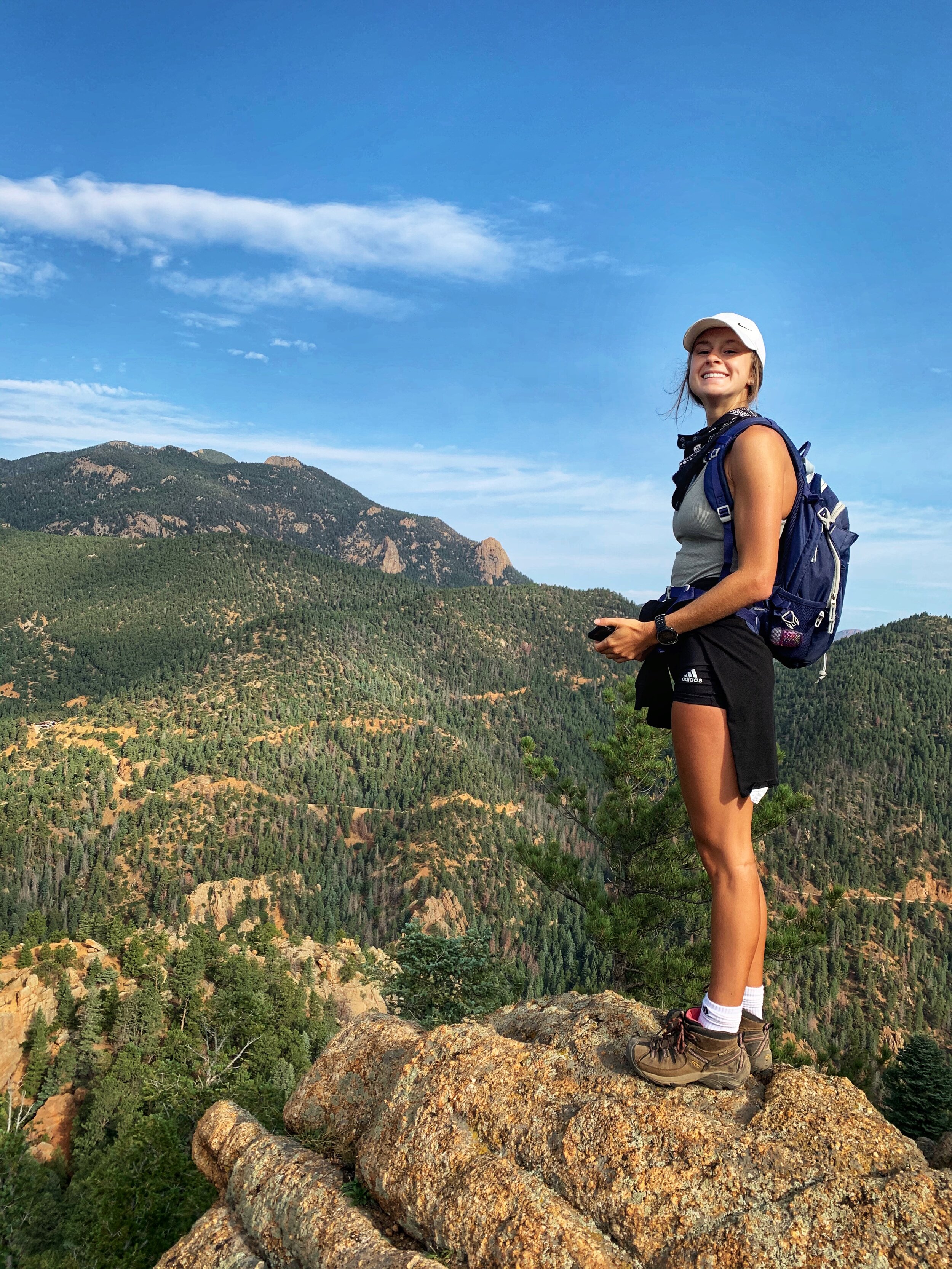IBD

Image of the blog author and two other women running on a dirt path in the sun.
Growing up in Colorado, I have always been an incredibly active individual, from hiking to climbing 14ers and my favorite activity of all: running. Starting in high school, I began to run more competitively and was fortunate to be recruited collegiately. Being a distance runner and familiar with the need to work through fatigue and discomfort to compete, I learned to ignore signs of pain and discomfort.
During my junior year of college, I began experiencing intense abdominal pain following every meal. It quickly progressed to pain nearly every moment of the day and bleeding with restroom use. As with everything else, I chose to dismiss these signals of distress from my body and keep training through. I stopped eating breakfast and lunch prior to my afternoon practices, so I could run with minimal pain. This led to significant weight loss. It did not slow the progression of my symptoms.
Eventually, I could no longer ignore my body. I needed to seek medical care. At this point, I had lost complete control and predictability over my symptoms – nothing I did seemed to keep away the constant abdominal pain and bleeding.
After a number of appointments, multiple labs, stool samples, and a colonoscopy, I was finally diagnosed with Crohn’s disease and began a physician-prescribed treatment plan. Despite my diagnosis and persistent symptomology, I continued competing in my current outdoor track and field season.
Eventually, pushing my body through high-intensity training while “managing” my Crohn’s with food avoidance caught up to me. Just as I ran the best track season of my life, it all came crashing down as I sustained a high-risk stress fracture.
At first, it seemed as though the world was against me. However, this forced break from competing allowed me to finally appreciate my body and prioritize taking care of my Crohn’s. I focused on managing my stress levels, finding ways to eat while still controlling my symptoms, and navigating the new treatment plan that my gastroenterologist prescribed to me.
You would think having been a competitive athlete and frequently pushing my physical limitations I would have already developed an appreciation for my body; however, this was not the case. It took a diagnosis and an eventual acceptance of Crohn’s disease for me to finally realize all the wonderful things the human body can do (even with Crohn’s).

An image of the blog author at the summit of a hike.
Prior to accepting my diagnosis, I viewed my body in a machine-like manner. Whatever demands I asked of it, my body had to supply. This meant no time for breaks – physical or mental – and constantly working through fatigue or pain. Once I was finally forced to take time to evaluate my approach with my body, I was able to fully appreciate all our body has to do in order to keep us alive and healthy. Our body should be more than a vessel to transport us from one place to the next – it is the very essence that allows us to engage and enjoy the world around us.
Crohn’s has taught me resilience, taught me patience, taught me gratitude. Rather than the resilience to continually push my body through my symptoms, I came to understand resilience as listening to my body and doing what is best for my long-term health (even when it may be in opposition to my internal desires). Rather than feeling as though I am continually in a race off to the next activity or step of my life, I learned to slow down and be patient with myself and my body. And, rather than falling into despair and asking “why did this have to happen to me?” I have learned to appreciate all Crohn’s has taught me and place gratitude in the strength it has given me.
Crohn’s has introduced me to a community of incredibly resilient and inspiring individuals who push me to contribute to a cause larger than myself. The strength and hope of this community gives me hope that each of us will continue to persevere and fight with the support of other IBD warriors.
